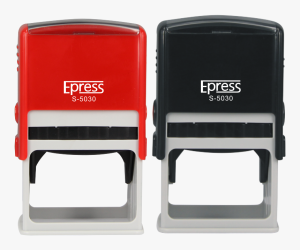Local Search Engine Ranking Factors for Local SEO Strategies
3 min read
Local Search Engine Ranking Factors for Local SEO Strategies
A local search is usually a targeted search query that generates a local search result page (SERP) which caters specifically to that local area, or geographical region. Generally, the terms of reference for a local search query to include a city, state and country, as well as the name of the business. A local search may generate a local SERP together with a map. In order to generate a local search result page, marketers use specific keywords, meta tags and on-site elements. A local search query is typically competitive, because users type in local queries as a means to narrow down their search.
Google’s local search query is based on two primary data sets: the users’ location and the maps being displayed on their SERPs. Google’s local search query is comprised of many individual maps, including Google Maps, Yahoo Maps, Microsoft Bing, and Android map pack maps. The first step to getting your local business listed on a Google Map is to submit your company’s information in Google Maps. This can be done through the Google Tools menu, under Resources. In order to submit your data set to Google, you will need to create an account.
To construct your local search query, consider the phrases that would best describe your company and the services or products that you offer. For example, if you are offering accounting services in your city, you may want to consider keywords like “accounting,” “accounts,” “bookkeeping,” “books,” “commerce,” and “oversight.” You can also consider the city name, which is included on your company’s website. It is common for companies to use city names when they are local businesses, or when their company is a part of a geographically top SEO agencies in Singapore. Google Maps uses city names within a query to provide search results that are most relevant to your clients.
Once you have completed your company information, you should consider the appropriate keywords that best describe your business. This is where the local search term strategy comes into play. Many online business owners do not pay attention to the appropriate keywords for their business. As a result, they can suffer from poor local use strategies, such as low search volume in local searches. If you do not consider keywords before starting your local SEO strategy, you could find yourself seeing poor results, costing you money.

The first thing you should consider is the typical language that a searcher types into the search box to find what they are looking for. Google has provided tools for searching using local search queries, such as terms like “where to eat” or “home repair,” and finding the top searches for these terms. You can compare the volume of organic searches for your keywords with the volume of local search queries that appear on the first page of Google.
Once you have determined the words that appear in the most queries, you can tailor your content to include these words. Google provides several tools for researching keyword phrases. You can also include the local intent keyword in your URL addresses and content titles, as well as on your Google+ pages. Google provides a knowledge panel on its Google+ page called “alka.” Local intent keywords will help you rank for local search results, since your webpage will convey to the Google+ community that you are located in this region.
The second thing you need to do to optimize your website for local searchers is to build a Google map pack. A Google map pack is a snippet of information that is included on each individual webpage of your website. The map pack serves as the gateway to your site, and it is crucial to the success of your business. Google maps is a huge part of the SERPs, and without a high-quality map pack, your site may never see the light of day. To get started with creating a Google map pack, sign up for Google’s free account.
While these two SEO strategies are important to improve your website rankings for local searchers, they don’t address the last component of your SEO strategy: your unique user experience. Unique user experience (USU) optimization focuses on creating user-friendly web pages. In essence, you want to provide a well-designed site with intuitive navigation so the user never has to leave the front page.






